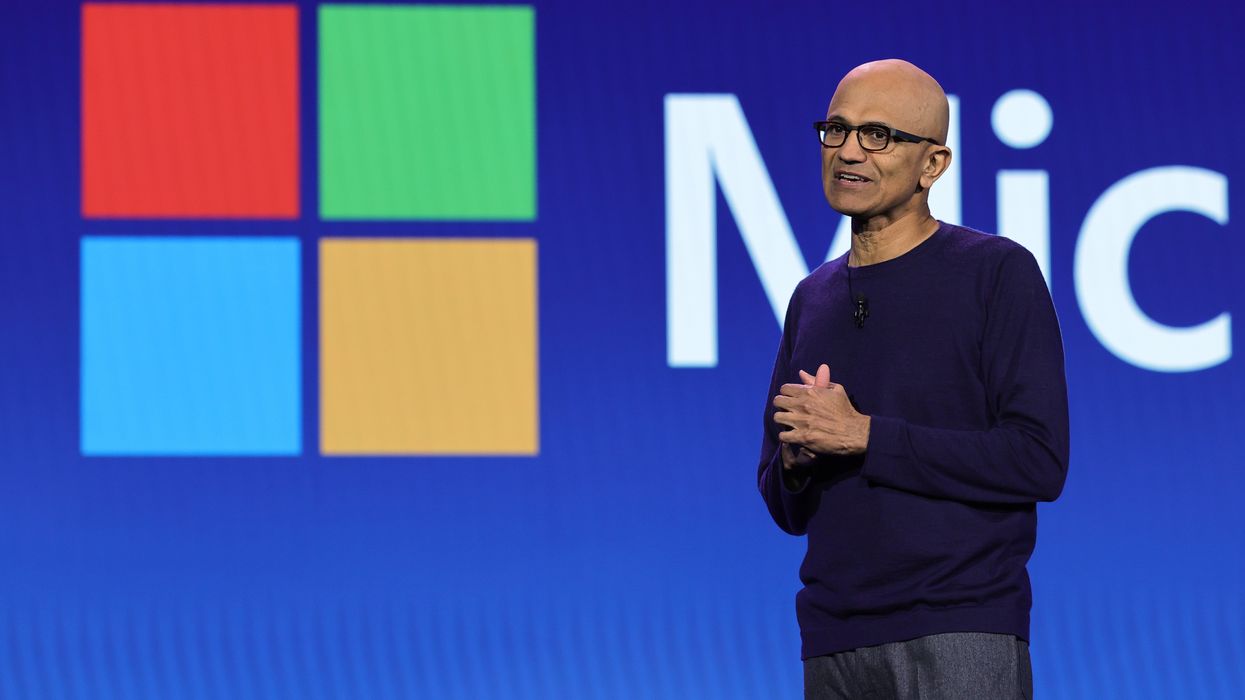PSYCHOLOGICAL safety is a term that may ring a bell for most people and even if it did, few understand what it means – yet embracing the concept in workplaces brings benefits and leads to improved outcomes.
A week-long initiative by Pearn Kandola – which works with organisations on diversity, equity and inclusion – aims to raise awareness and bust misconceptions about the concept.
Binna Kandola OBE, co-founder of Pearn Kandola, said there is an opportunity to not just introduce the idea, “but to make us look afresh at diversity and inclusion, as identity, background and inclusion are central to psychological safety”.
In an interview with Eastern Eye ahead of the five online webinars (22-26), Kandola explained how one of the biggest misunderstandings links psychological safety to comfort.
“People think, ‘if I don’t feel comfortable in the workplace or if I’m being challenged, then it must be unsafe’.”
Dismissing the idea of conforming, keeping one’s head down, or not speaking up, he said, “Actually, psychological safety is neither of those things. We need to be respectful and we need to show people we value them.
“There are constraints around this, but within that, there’s no reason why you and I shouldn’t disagree on something, and there isn’t any reason why we shouldn’t disagree quite passionately about something, as long as it doesn’t get personal.”
He added, “If you look at the examples of psychological safety in organisations, you find that people do raise concerns. They can talk about mistakes, about errors and as long as it doesn’t overstep the mark and become personal, it is a good thing to be doing.”
Some of the themes being addressed during Psychological Safety Week are why adopting it matters, how companies bring about innovation and change and why empowering workers to challenge, question and disagree can lead to higher levels of trust and stronger teams.
Kandola is writing a book (due in November) and has cited case studies of organisations which didn’t provide psychological safety and therefore suffered (negative) consequences.
However, he said there are others “who were in a bad position, who adopted a more open, transparent way of working, and it led to greater success.
“Of the latter kind, look at the chief executive of Microsoft – Satya Nadella.
“He wasn’t expected to get the role. Bill Gates saw him, and thought, ‘I like what he’s doing, the way he thinks and recommended him. “Nadella went through the selection process and he got the job. “But when he took over, Microsoft was actually on a downward trend. Nadella cowrote a book called Hit Refresh (The quest to rediscover Microsoft’s soul and imagine a better future for everyone) where he explained how he had to get senior leaders to understand who they were.
“At the core of his strategy was empathy, to be more empathetic towards one another, towards customers, partners.
“When the industry is competitive, to try and see things from the other person’s point of use… empathy was at the heart of his transformation. Of course, they’re now hailed as one of the greatest examples of transforming a major corporation.”
In contrast, Kandola points to US aviation major, Boeing, which went from being one of the most revered companies in the world during the 1980s, to one of the most distrusted about 40 years later.
“That’s quite something to be able to do that that quickly, and they suffered enormously,” he said.
Another example is that of health teams, Kandola said, noting that those which report the greatest number of errors also have the best patient outcomes.
“It seems like an ironic practice, but the fact of the matter is teams that report fewer incidents are having just as many incidents. They’re just not reporting them, so they don’t give themselves the opportunity to learn.
“If you have the confidence and said, ‘Look, there’s a mistake. It happened. What do we learn from that?’ Things start to improve. But if I make a mistake and I’m not telling you that, we don’t find out about it. It could get worse. You cover it up, but also you miss the opportunity to learn from it, to improve our practice.” Some of the barriers to adopting psychological safety may be hierarchy, or existing cultural norms.
Kandola said it’s a natural human reaction to “want to fit in, blend in with others”. “So if I see something going on, or there’s a course of action people are all agreeing on, and I’m thinking, I’m not sure that’s the right way to be going. That pressure to conform means I will be less likely to speak up,” he said.
However, he also pointed out that in “countries across Asia, for example, which are very respectful of leaders and because of the position they hold, there are very successful economies and very successful organisations.
So hierarchy in itself isn’t necessarily a barrier, but it can be.
“I think the approach the leader adopts is more important.”
Kandola said there’s interest in psychological safety, but the understanding isn’t there. “So I’m hoping the webinars will increase their understanding, but also offer opportunities to see how to cycle through the daily challenges, be able to start apply some of the things that we’re talking about.




